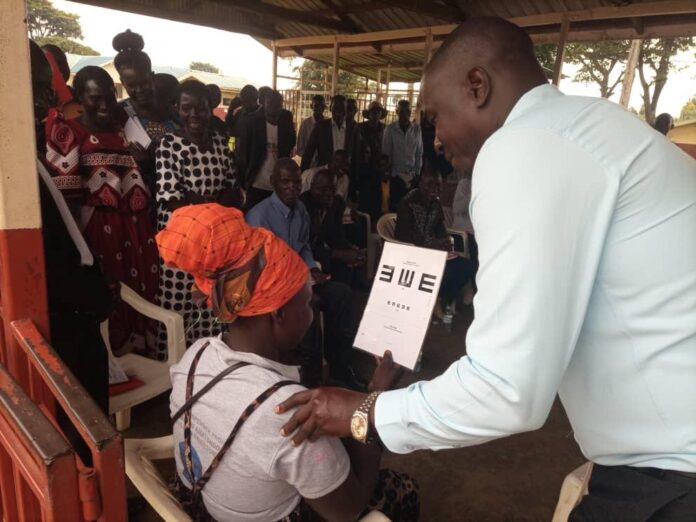Residents in Kaliro District, particularly those aged 40 years and above experiencing vision difficulties, received free reading glasses, marking a significant step towards increasing access to assistive technologies at the community level.
The initiative aims to dramatically improve the quality of life, independence, and productivity for thousands across the region.
The distribution process in Kaliro is being meticulously carried out by dedicated Village Health Teams (VHTs), who conduct simple yet effective “near vision tests” to assess individual needs and provide appropriate prescriptions.
This localized approach ensures that the aid reaches those who need it most, directly within their communities.
The immediate impact of the program is already evident in personal stories. One of the first beneficiaries, a woman who previously struggled immensely with daily tasks due to her deteriorating eyesight, shared her profound relief.
She recounted her inability to insert a thread into a needle or read her cherished Bible – activities now restored to her with the aid of the reading glasses. Her improved quality of life underscores the transformative potential of this intervention.
This vital support stems from a substantial donation received by the Ministry of Health in July. Dr. Olaro Charles, the Director General Health Services, on behalf of the Ministry, accepted 25,000 pairs of reading glasses from Evidence Action and an additional 16,200 pairs from the Clinton Health Access Initiative (CHAI).
These 41,200 pairs are designated for distribution through health facilities across the Bukedi and Busoga sub-regions, with Kaliro District being among the first to roll out the program.
The assistive devices are specifically targeted at persons with disabilities, particularly middle-aged individuals (40 years and above) suffering from presbyopia or other forms of near vision loss.
By providing these glasses, the initiative seeks to enhance their ability to engage in essential daily activities such as reading, writing, sewing, cooking, and counting money. This directly contributes to greater independence and productivity for the beneficiaries.
The Ministry of Health emphasizes that this support comes at a crucial time as Uganda strengthens its rehabilitation and assistive technology services. The program is a testament to the nation’s commitment to ensuring inclusivity and an improved quality of life for all Ugandans, fostering a society where age or vision challenges do not hinder participation and well-being.



